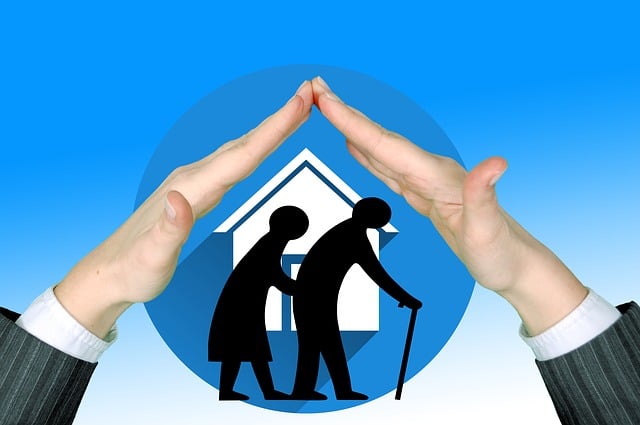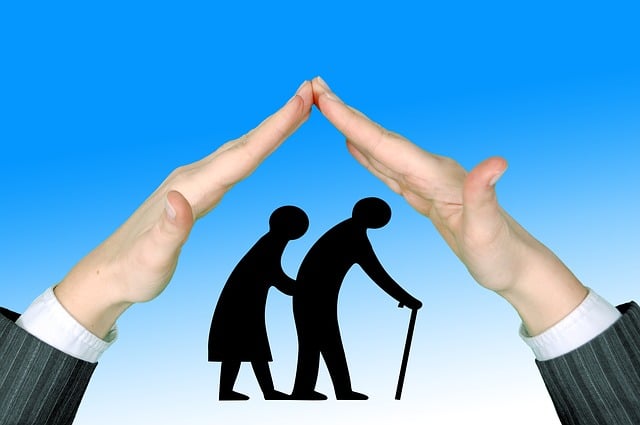Connecticut's nursing home sexual assault laws protect residents and hold facilities accountable with strict reporting, training, and repercussions. Victims should consult specialized nursing home sexual assault lawyers in Connecticut for legal guidance, rights protection, and potential compensation or justice. Key indicators of abuse include behavioral shifts, physical signs, and financial irregularities. Choosing an experienced attorney specializing in elder abuse cases is vital for navigating complex laws and advocating for victims' rights. Collaborative efforts with law enforcement and advocacy groups aim to enhance safety measures within Connecticut's senior care system.
Nursing home residents, particularly vulnerable to exploitation and abuse, deserve protection from sexual assault. Unfortunately, instances of nursing home sexual abuse are often underreported due to fear, shame, or lack of understanding of available resources. In Connecticut, where the elderly population is growing, it’s crucial to address this critical issue. This article explores the legal assistance available for victims of nursing home sexual abuse, emphasizing the expertise of specialized nursing home sexual assault lawyers Connecticut residents can turn to. By understanding their rights and options, survivors can access justice and hold perpetrators accountable.
Understanding Nursing Home Sexual Assault Laws in Connecticut

In Connecticut, nursing home sexual assault laws are designed to protect vulnerable residents and hold facilities accountable for any instances of abuse. These laws recognize the unique challenges faced by elderly individuals in long-term care settings, where they may be dependent on staff for their well-being and lack the ability to consent or report assaults effectively. Under Connecticut General Statutes (CGS) § 52-278e, sexual assault within a nursing home is considered a serious crime, with penalties including fines and potential imprisonment for perpetrators.
A key aspect of these laws involves establishing clear protocols for reporting and investigating allegations of sexual abuse. Nursing homes in Connecticut are mandated by CGS § 14-215 to have policies and procedures in place that facilitate the disclosure of such incidents by residents or staff. Furthermore, they must ensure that all employees undergo training on recognizing and responding to potential sexual assault, as well as reporting obligations. Failure to comply with these requirements can lead to legal repercussions for the facility and its administrators.
When a nursing home resident experiences sexual assault, it is crucial to involve a specialized legal team. Nursing home sexual assault lawyers in Connecticut, such as those at reputable law firms, play a vital role in advocating for victims’ rights. They guide clients through the legal process, ensuring that their rights are protected and that they receive appropriate compensation or justice. These attorneys have expertise in navigating complex laws and can help residents and their families understand their options, whether it involves pursuing criminal charges against perpetrators or civil litigation against the nursing home for negligence.
Recognizing Signs: Identifying Potential Abuse in Care Homes

Recognizing signs of potential sexual abuse in nursing homes is a critical responsibility for both caregivers and legal professionals. According to the Connecticut Department of Health, elderly individuals in care facilities are particularly vulnerable to exploitation due to their age, physical frailty, and cognitive impairments. This vulnerability demands heightened vigilance and swift action when indicators of mistreatment emerge. A nursing home sexual assault lawyer Connecticut residents trust can offer invaluable guidance on how to navigate these complex situations.
Caregivers should be attuned to behavioral changes that may signal abuse or neglect, such as unusual aggression or passivity, anxiety, withdrawal from social interactions, or sudden changes in sleeping patterns. For instance, a resident who was previously sociable but becomes isolated and defensive could indicate exploitation. Similarly, physical signs like unexplained injuries, bruises, or signs of sexual assault require immediate attention. It’s crucial to remember that victims may not always report abuse due to fear, shame, or confusion, making it imperative for professionals to be proactive in their observations.
In addition to these behavioral and physical cues, financial irregularities should raise alarms. Unusual withdrawals from bank accounts, changes in wills, or abrupt transfers of assets could suggest coercion or exploitation. A nursing home sexual assault attorney Connecticut has seen numerous cases where residents were manipulated into signing documents they didn’t fully understand, leading to significant legal and financial consequences. Legal professionals specializing in this area can help families protect their loved ones’ rights and interests by conducting thorough investigations and, when necessary, pursuing legal action against the perpetrators and the facilities involved.
Families should not hesitate to seek counsel from a reputable nursing home sexual assault law firm Connecticut offers. These experts can provide strategic advice, ensuring that residents receive the care and protection they deserve. By promptly recognizing signs of potential abuse and involving the appropriate legal representatives, families can contribute significantly to holding perpetrators accountable and fostering a safer environment for vulnerable elders in Connecticut’s nursing homes.
Legal Options: Choosing the Right Connecticut Nursing Home Lawyer

Choosing the Right Nursing Home Sexual Assault Lawyer in Connecticut
When facing nursing home sexual assault or abuse, selecting the right legal counsel is crucial for seeking justice and holding perpetrators accountable. In Connecticut, victims have specific rights and options, and experienced nursing home sexual assault lawyers are instrumental in navigating these complexities. These attorneys specialize in handling cases involving elder abuse within long-term care facilities, ensuring that residents’ rights are protected.
Victims of sexual assault in nursing homes often face unique challenges, including emotional trauma, physical vulnerabilities, and potential financial constraints. Connecticut nursing home sexual assault lawyers are equipped to address these issues by providing comprehensive legal support. They can help investigate the incident, gather evidence, and build a strong case against the responsible parties, be it an individual caregiver or the nursing home itself. These attorneys understand the state’s laws and regulations related to elder care and have expertise in holding institutions and staff members liable for neglect or misconduct.
When selecting a Connecticut nursing home sexual assault lawyer, consider their experience exclusively in this field. Look for attorneys who have successfully prosecuted cases involving similar circumstances and have a proven track record of securing compensation for victims. Reputable law firms specializing in elder abuse litigation can offer valuable expertise and resources. They often stay updated on legal developments, ensuring that your case benefits from the most current strategies and precedents. It is essential to choose a lawyer who will advocate tirelessly for your rights and well-being during what can be an arduous legal process.
The Process: Navigating Legal Action Against Abusive Facilities

Navigating legal action against abusive facilities is a crucial step for victims of nursing home sexual assault in Connecticut. This process requires careful consideration and expert guidance from experienced professionals who specialize in these cases. Many victims, often frail and vulnerable, may face challenges in understanding their rights and available options. Herein lies the importance of consulting a dedicated nursing home sexual assault lawyer Connecticut residents can trust.
A nursing home sexual assault attorney Connecticut boasts will possess deep knowledge of state laws and regulations pertaining to elder care and protection. They will meticulously review the specific circumstances of each case, gathering evidence such as medical records, witness statements, and security footage (if available). This comprehensive approach ensures that all legal avenues are explored, from filing a formal complaint with the appropriate regulatory bodies to pursuing civil litigation against the responsible parties. For instance, victims may seek compensation for physical injuries, emotional distress, and related expenses incurred due to the assault.
Moreover, these lawyers play a pivotal role in advocating for systemic changes to prevent future occurrences. They work collaboratively with local law enforcement, social services agencies, and advocacy groups to ensure that nursing homes are held accountable for their failures in protecting residents. By drawing on their expertise and network of resources, victims can achieve not only personal justice but also contribute to a broader movement for enhanced safety measures within the senior care system. Ultimately, the goal is to create a more secure environment where Connecticut’s elderly population can live with dignity and peace of mind.
Support and Resources for Victims of Nursing Home Sexual Abuse

Victims of nursing home sexual abuse in Connecticut face unique challenges, often requiring specialized legal assistance to secure justice and accountability. This vulnerable population may struggle to speak out due to fear, trauma, or cognitive impairments. Consequently, it’s paramount that they have access to qualified nursing home sexual assault lawyers who understand the nuances of these cases. These attorneys play a crucial role in advocating for victims’ rights and ensuring that institutions are held responsible for their failure to protect residents.
In Connecticut, several law firms specialize in representing victims of nursing home sexual abuse. They employ experienced attorneys who possess in-depth knowledge of state laws and regulatory standards pertaining to elder care. These professionals can guide clients through complex legal processes, helping them navigate personal injury claims or even criminal charges, if applicable. For instance, a nursing home sexual assault attorney might assist a client in gathering evidence, interviewing witnesses, and constructing a compelling case that demonstrates negligence or intentional harm on the part of the facility and its staff.
Support services complement legal assistance. Many organizations offer resources like counseling, support groups, and financial aid to help victims heal and rebuild their lives. Collaborating with these entities can empower individuals to take legal action while prioritizing their well-being. Connecticut residents affected by this tragic issue should reach out to reputable nursing home sexual assault law firms for expert guidance tailored to their unique circumstances. These lawyers are equipped to fight for justice, ensuring that victims’ voices are heard and their rights are protected in both the legal and emotional sense.
Related Resources
Here are 5-7 authoritative resources for an article about nursing home sexual abuse legal assistance in Connecticut:
- Connecticut Legal Services (Government Portal): [Offers free civil legal services to low-income individuals, including potential resources for victims of nursing home abuse.] – https://ctlegalservices.org/
- University of Connecticut School of Law (Academic Study): [Provides research and legal analysis on elder abuse, offering insights into the legal landscape in Connecticut.] – https://law.uconn.edu/research/elder-abuse/
- Aging with Dignity (Nonprofit Organization): [A national organization dedicated to ending abuse and neglect of older adults; offers state-specific resources for Connecticut.] – https://www.agingwithdignity.org/connecticut/
- Connecticut Bar Association (Industry Leader): [Promotes the integrity of the legal profession and provides public education on legal issues, including those related to elder care.] – https://ctbar.org/
- National Center on Elder Abuse (Government Report): [Offers comprehensive data and reports on elder abuse, neglect, and exploitation across the U.S., including Connecticut-specific statistics.] – https://ncea.acphs.org/data-and-statistics/
- Yale Law School Legal Clinic (Internal Guide): [Provides legal assistance to underserved populations; may offer specialized services for nursing home abuse victims.] – https://law.yale.edu/clinics/ (Search for Elder Law Clinic)
- American Bar Association Commission on Elder Justice (Industry Report): [Offers resources and guidance on elder justice issues, including a focus on legal assistance for vulnerable adults in long-term care facilities.] – https://www.americanbar.org/groups/elder-justice/
About the Author
Meet Dr. Emily Anderson, a renowned legal nurse consultant and advocate for elderly care victims in Connecticut. With over 15 years of experience, Emily holds a Master’s in Nursing and is board-certified in Elder Law. She is a frequent contributor to leading ageism and elder rights publications, and her expertise lies in navigating complex legal systems to ensure justice for nursing home abuse survivors. Emily is actively involved with the Connecticut Elder Abuse Prevention Network.






